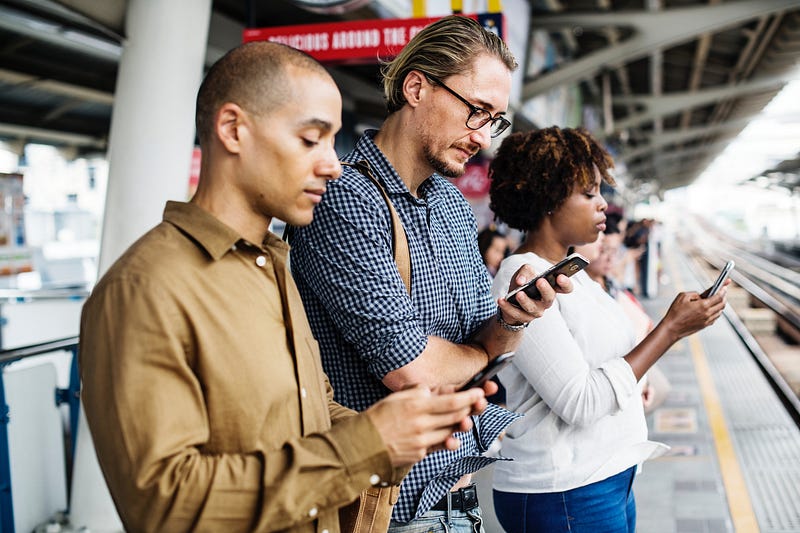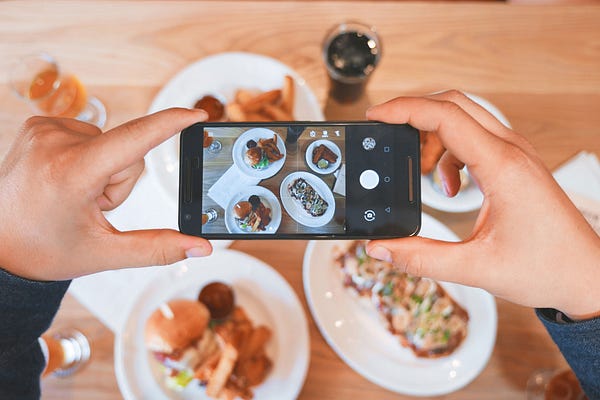Social media could be linked to negative effects on mental health.
Did you know that over 5 million images are uploaded to Instagram each day? Endless pictures of people’s food, scenic views, boomerangs of people enjoying a glass of prosecco or photos of people visiting new places around the world filling up your social media feed, all day, every day.
Have you ever considered what effects social media has on our lives? How it impacts our behaviours, our friendships, or even our physical and emotional health? Social media is easily accessible for you to connect with people from around the world at just the click of a button. You’re able to connect with old school friends, keep an eye on your favourite celebrities or post pictures and videos of all your adventures with friends. Social media has created an active worldwide community that never sleeps. Whatever time it is, wherever you are, Facebook, Instagram, Twitter and the rest are just a click away on your phone, laptop or tablet. You can even get alerts straight to your smart watches.
Social Media can be seen as a positive way to help people develop socially, make friends and keep up to date with all the latest news from around the world. Cosmetic companies, travel agents, recruitment companies, even banks and news outlets, use Social Media as a way of getting their message out there in the quickest way possible. And whilst a global community and a chance to learn and develop are invariably a good thing, Social Media use can also hinder the emotional and mental health of a person.
It’s been reported that 18% of people can’t go a few hours without checking their newsfeed. They aren’t looking for something in particular, just simply scrolling — trying to keep up to date with all postings so as not to miss anything from the cyber world.

Much like nicotine, social media can become addictive. Whether it is ‘just browsing’ through everyone else’s posts, or searching for your next like, retweet or up vote, it can become something you feel you cannot live without. Being addicted to one thing doesn’t just affect one specific thing in your life, though; and the unintended consequences and ripple effects of social media addiction can be damaging to both mental and physical health.
What are the side effects?
One of the biggest side effects is lack of focus for users whilst at work or when studying. As the addiction develops and deepens, the lack of focus could lead to failed exams or even loss of job.
Emotional side effects could be lack of confidence, cyber bullying and even fixation. The loss of that clear line between what’s real life and cyber life can become blurred. It’s an easy trap to fall into, seeing how perfect everyone else’s lives are, and then wondering why you don’t go on the same adventures, that you can’t reach the same amazing feats of friends, colleagues, of strangers. It’s easy to get caught up in bullying from emboldened strangers that have the anonymity of being behind a keyboard and don’t need to say things to your face. Its online, how can you let anyone take you seriously? It’s easy to get caught up following someone, seeing what they do, where they go and want to match it — and that is what your day becomes. It’s all too easy to fall victim to these pitfalls. Scary, right?
Ask yourself, how many times have you looked at an Instagram post of your favourite celebrity and felt envious of their ‘slim summer body’? How did it make you feel? Imagine endlessly scrolling day in, day out and all you see is that ‘perfect bikini body’. It’s the feelings of envy that can knock someone’s confidence, which can lead to further effects on their emotional well-being.

Studies show that Facebook dominates the social landscape with a 63% market penetration, if we were going to compare Twitter to the size of a country, it would be the 12th largest in the world and Instagram has over 3.5 billion likes every day. Those are some staggering facts, don’t you think? It just goes to show just how big social networking has become.
Is social media a good or a bad thing?
As with many leisure activities, perhaps it should be the principle of ‘everything in moderation’. It’s okay to click like on one of your favourite celebrity’s holiday snap and it’s okay to use Twitter for your daily source of news. Just make sure you are focusing on reality too — don’t get caught up on what everyone else is doing. Know that whilst you are worrying that everyone else’s lives are more interesting or action packed, those people you envy are thinking the same thing about your life.
Are you addicted?
So, do you feel like you could be addicted? DocHQ have provided their top 3 suggestions on helping you to curb the addiction below:
Turn off your notifications
By doing this you won’t be distracted by your phone pinging with updates constantly. You’ll be able to concentrate more your daily activities, not to mention you will have built up more notifications to view in one go making your time on social media more exciting!
Get a new hobby
By occupying your time more, you should naturally find yourself scrolling through your newsfeed less. Try taking up reading to help stimulate your mind more, going for a walk to help with your physical well-being or volunteer to help a group or person. They all have great benefits.
See more of your friends and family
Seeing more of your loved ones in real life, as opposed to through a screen will help with your emotional well-being by allowing you to reconnect with them on a more personal level. By creating more memories you’re feel happier and more content — remember, you don’t need to document everything you do with a selfie.
If you feel you need to talk to someone regarding mental health, make sure you contact your GP. Don’t suffer in silence.
Further information that may be of interest to you: 6 signs of poor mental health, 5 ways to boost your mental health, building confidence, hanger, mindfulness.
DocHQ Ltd is a Health Tech company improving choices. We help you connect efficiently to health support and advice whether you are at home, work or travelling. See our website for our services or call us on 0330 088 0645.



